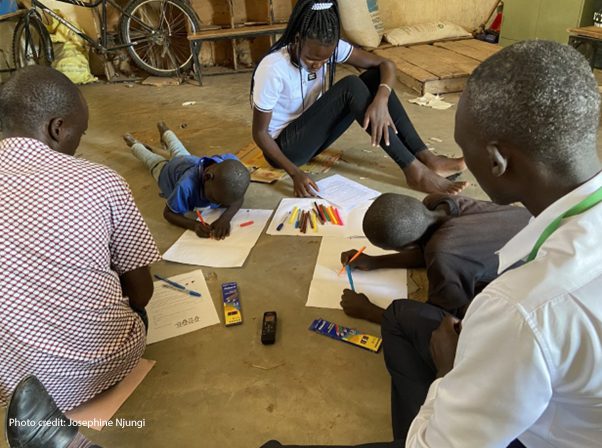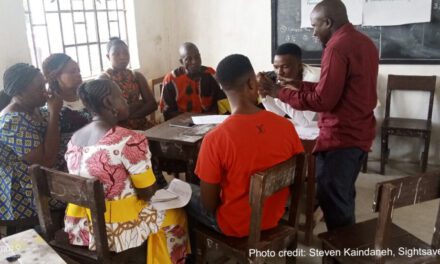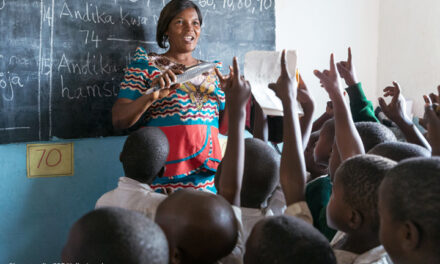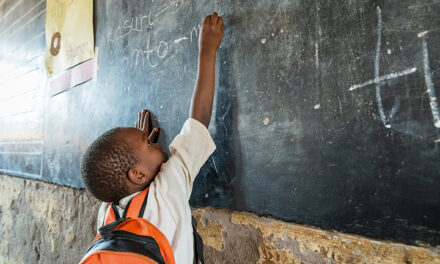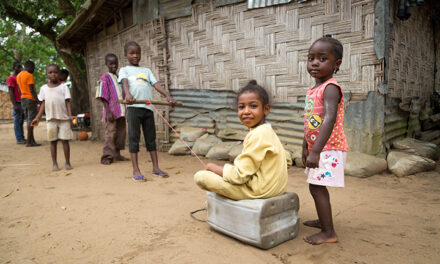This blog was written by Dr Stephen Thompson, Research Fellow, and Brigitte Rohwerder, Research Officer, at the Institute of Development Studies. It is based on their presentation from the September 2023 UKFIET conference. This blog is also published on the IDS website and Participatory Methods website.
It is nearly 30 years since the UNESCO Salamanca Statement called for inclusive education to become the norm. Sustainable Development Goal 4 demands ensuring inclusive and equitable quality education and promotes lifelong learning opportunities for all including children with disabilities. Yet for many children with disabilities, inclusion in mainstream education remains an unfulfilled dream. Disability inclusive research can play a key role in accelerating efforts towards achieving inclusive education by providing evidence on the complexity and nuances of the barriers and challenges that exist that result in children with disabilities being excluded or marginalised.
Since 2018, IDS has been part of an initiative called Inclusive Futures, which is led by Sightsavers and works with consortium partners and Organisations of People with Disabilities (OPDs), to ensure that people with disabilities are included in various aspects of life, including education. Funded by the UK’s Foreign, Commonwealth & Development Office (FCDO), IDS has a specific role within Inclusive Futures of developing, and implementing innovative qualitative participatory methods. At the UKFIET conference in September 2023, we presented findings from two projects – the first focused on inclusive early childhood development and education in Kenya, and the second focused on primary level inclusive education in Nigeria. In both cases we used a range of participatory and inclusive methods to gather data, with activities designed to ensure that everyone, whatever their impairments or access needs, could join in and contribute.
While the findings from the research are of course important, we want to use this blog to reflect on the research process. Below, we explore five key factors to emerge from our work that we feel must be considered when undertaking participatory and inclusive research involving children with disabilities. We also include links to resources that we used in the hope that they are useful to other researchers who are planning to undertake similar participatory research on inclusive education.
- Safeguarding is of utmost importance
Keeping children with disabilities safe is vital. While it should not be assumed that disability and vulnerability are automatically linked, children with disabilities are often among the most at risk and disadvantaged, and therefore careful thought is needed with regards to safeguarding. No research should increase the risk of harm that children with disabilities face.
There are a range of resources available to guide researchers with regards to safeguarding, such as Able Child Africa and Save the Children’s international disability-inclusive child safeguarding guidelines. We found these particularly useful when planning our work, as they provide practical solutions for organisations on how to include children with disabilities in each step of the process.
- Ethics needs careful consideration
Ethics is important for any research, but particularly so for research involving children with disabilities. Policy decisions relating to inclusive education should be informed by the perspectives and concerns of children with disabilities themselves – they have a right to be heard and to participate in research which is about them. It is of utmost importance that this involvement in research is ethical.
UNICEF Innocenti’s Working Paper focused on exploring critical issues in the ethical involvement of children with disabilities in evidence generation was particularly helpful as it presents established and potential mitigation strategies that could improve ethical practices when involving children with disabilities in research.
- Collaboration is central to success
For the research in both Kenya and Nigeria, collaboration with OPDs, local researchers, and the relevant authorities was vital to success. The research in Kenya involved peer researchers who were members or supporters of the local OPDs. They lived and worked in the project areas, spoke the local languages, and had lived experience of disability, helping them relate to the children with disabilities. This connection to grassroots organisations and people who knew the area well allowed the research to be tailored to the local environment, while also ensuring that the best interests of the children with disabilities were highlighted throughout the research process.
- Trust is important!
Trust needs to be built between participants and researchers; it is something that must be worked on. It cannot be assumed that the child participants will automatically trust the adult researchers who they have just met. Time must be factored in to the schedule to allow for specific activities aimed at building trust to be undertaken. Introductory activities and icebreakers can be used to energise the children and to help them feel relaxed. In both Nigeria and Kenya, a simple game with a ball helped to engage the children and released any tension or nervousness they may have had from the unfamiliar situation.
- Play-based creative methods are valuable for child-based research
Conducting research with children can be challenging. Using play as an approach to undertake such research has been shown to overcome barriers and be meaningfully inclusive. Making the research process fun does not reduce its rigour nor diminish the importance of the findings. When appropriate play-based methods are selected, they can result in gaining a better understanding of children’s perspectives and can be used to prioritise the rights of the child and amplify their voice.
The points we have covered above are hopefully a good starting point for anyone interested in developing inclusive and participatory methods to strengthen inclusive education. While there is still so much to do before inclusive education is a universal reality, we believe that a participatory and inclusive approach to research moves us closer to this goal.

